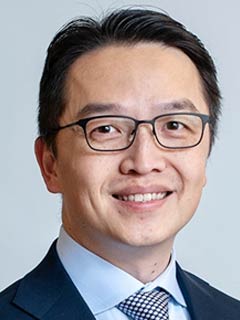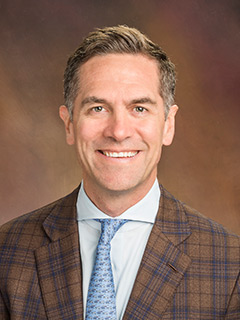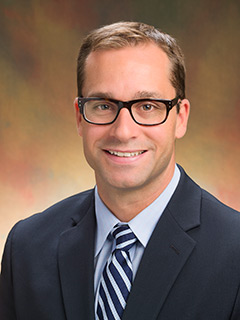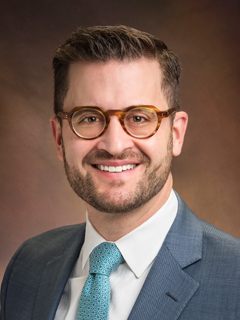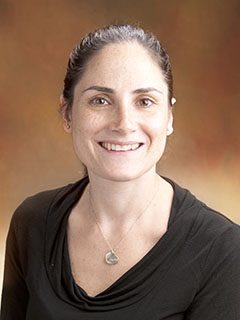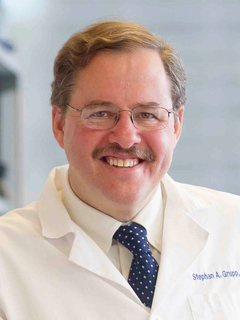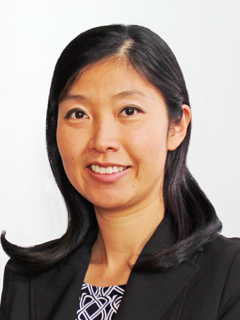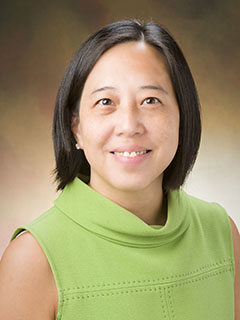HOW CAN WE HELP YOU? Call 1-800-TRY-CHOP
In This Section
New Frontiers, Novel Findings in Fanconi Anemia, Concussion Recovery

This week In The News, Children's Hospital of Philadelphia continues to pioneer pediatric healthcare advancements with two new Frontier Programs, and CHOP researchers discuss a newly approved gene therapy approach for sickle cell disease in a "Good Morning America" interview. A novel sequencing technology proves popular with Nature Communication readers, researchers define the origins of hematopoietic failure in Fanconi anemia, and Minds Matter Concussion Program experts study mental health conditions and concussion recovery.
Legacy of Discovery: CHOP Announces New Frontier Programs
CHOP Frontier Programs conduct visionary research that translates to cutting-edge clinical care and innovative advances in children's health. CHOP champions these programs to bring together the best minds to the most challenging conditions and ensure they receive critical support to accelerate their progress. Executive Vice President and Chief Scientific Officer of CHOP Research Institute Susan Furth, MD, PhD, and CHOP Physician-in-Chief and Chair of Pediatrics Joseph St. Geme, MD, announced two new Frontier Programs for 2025:
Advancing Craniofacial Treatment with Genomics and Gene Therapy led by Eric C. Liao, MD, PhD; Jesse Taylor, MD; and William Peranteau, MD
The Advancing Craniofacial Treatment with Genomics and Gene Therapy Frontier Program will harness the power of genomic medicine to develop precision treatment plans and predict outcomes for children with craniofacial conditions. Craniofacial anomalies represent the most frequent type of congenital condition, often stemming from genetic factors and leading to various complications. Current treatments for these conditions typically involve multiple invasive procedures that occur over several years, with widely varied outcomes. The program will spearhead innovations in gene therapy with the goal of developing novel treatment options for children with oral-facial clefts and craniofacial conditions.
CHOP Kidney Stone Center led by Gregory Tasian, MD, MSc, MSCE; Michelle Denburg, MD, MSCE; and Stephen Master, MD, PhD
The CHOP Kidney Stone Center Frontier Program will integrate care for children with complex kidney stone disease across CHOP and create a data framework to transform the diagnosis and treatment of kidney stone disease. A disorder of mineral metabolism, kidney stone disease is becoming increasingly common among children and carries a significant risk of other medical complications. Treatment options are limited, and current diagnostic tests are often cumbersome and unreliable. The program will develop novel diagnostic tests that enable early detection of kidney stones and personalized treatment approaches while also addressing barriers to testing.
Congratulations to CHOP's newest Frontier Programs, which continue the legacy of discovery and innovation at the core of CHOP's mission for more than 150 years.
Learn about previous years' trailblazing initiatives on the Frontier Programs page.
'Good Morning America' Features CHOP Leaders in Gene Therapy Segment
Hosts of the national television program "Good Morning America" highlighted cutting-edge gene therapy treatment for sickle cell disease and interviewed CHOP experts about this life-changing therapy.
"Gene therapy really holds the promise of reducing or eliminating pain, and potentially improving survival [for patients with sickle cell disease]," said Alexis Thompson, MD, MPH, chief of the Division of Hematology at CHOP, in the segment, which also featured two adult patients who benefitted from gene therapy for sickle cell disease.
The U.S. Food and Drug Administration approved two therapies — exa-cel (Casgevy®, Vertex and CRISPR Therapeutics) and lovo-cel (Lyfgenia®, bluebird bio) — for patients 12 years and older with recurrent vaso-occlusive crises in December 2023. Exa-cel is the first-ever treatment to use the Nobel Prize-winning technology called CRISPR to edit a patient's DNA as a potential cure for disease. Lovo-cel introduces a new gene through a modified virus vector for a form of hemoglobin that is resistant to sickling.
Stephan Grupp, MD, PhD, served as a principal investigator on the exa-cel trial at CHOP and leads the Vertex steering committee for the international registration trial. He appeared in the "Good Morning America" segment explaining how genetically modified stem cells are processed in the Cell and Gene Therapy Laboratory, where he serves as medical director.
Dr. Grupp is also section chief of Cellular Therapy and Transplant at CHOP and the inaugural director of the Susan S. and Stephen P. Kelly Center for Cancer Immunotherapy.
Watch the "Good Morning America" segment.
Read more about CHOP's role in the first two gene therapies for sickle cell disease on Cornerstone.
Learn more in the CHOP news release.
Novel Sequencing Technology Among Top 25 Nature Communication Papers
Nature Communications editors named a CHOP-authored paper on a novel method for targeted long-read RNA sequencing as one of the journal's top 25 most downloaded life and biological science articles of 2023.
CHOP scientists and co-senior authors Yi Xing, PhD, and Lan Lin, PhD, along with their team, developed an easily applied and highly cost-effective technology compared to standard commercial solutions. Dr. Xing is the director of the Center for Computational and Genomic Medicine, and Dr. Lin is an assistant professor of Pathology and Laboratory Medicine and a member of the Raymond G. Perelman Center for Cellular and Molecular Therapeutics.
The technology, called TEQUILA-seq (Transcript Enrichment and Quantification Utilizing Isothermally Linear-Amplified probes in conjunction with long-read sequencing), can be adapted for different research and clinical purposes, and researchers can choose which genes they want to sequence and make the reagents for target capture in their own labs.
"This has the potential to accelerate the discovery of new diagnostic and therapeutic solutions for a wide range of diseases," Dr. Lin said.
Their findings appeared in the August 2023 issue of Nature Communications.
Learn more about TEQUILA-seq in the CHOP news release.
See the complete list of 25 articles.
Defining the Origins of Hematopoietic Failure in Fanconi Anemia
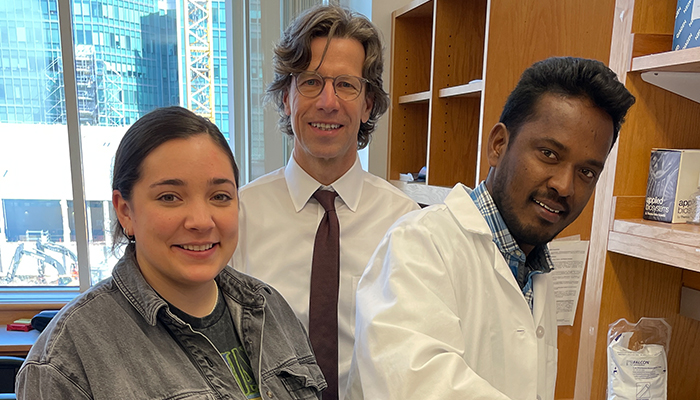
From left, Greer Jeffrey, BA, Peter Kurre, MD, and Narasaiah Kovuru, PhD
Peter Kurre, MD, director of the Comprehensive Bone Marrow Failure Center at CHOP, led a group of international researchers who revealed the origin and pathophysiological trigger for the onset of Fanconi anemia (FA).
FA is typically studied as a DNA repair disorder. The current study shows, for the first time, that FA-related stem cell defects originate before birth with dysregulation of how proteins are folded and discarded. This suggests that the progressive loss of stem cells in patients with FA has less to do with DNA repair than with excess protein production. The findings appear in Nature Communications.
"The underlying science is that the hematopoietic stem cells require tight protein control," Dr. Kurre said. "It can be described as a Goldilocks situation — too little protein results in one disease and too much protein leads to a different disease. In the case of Fanconi anemia, understanding how to reduce protein accumulation is the challenge we seek to overcome."
The discovery in this paper revealed that improved protein folding can rescue stem cell numbers. Dr. Kurre and his collaborators will further investigate the role of a hydrophilic bile salt, TUDCA (tauroursodeoxycholic acid), in the restoration of protein folding.
FA is a rare, inherited disease that affects 1,500-2,000 patients in the United States and manifests with bone marrow failure in early school age, various physical abnormalities, and increased cancer risk. The only current effective treatment is a stem cell transplant, which excludes patients without a donor and can have significant side effects.
Dr. Kurre credits CHOP Research Institute resources such as the Flow Cytometry Core, Center for Applied Genomics Sequencing Core, and bioinformatics support for enabling his team to identify this disease mechanism and pinpoint the origins of disease onset. Ongoing research will involve the CHOP-Penn Proteomics Core as the researchers seek a target protein for new therapy development.
Additional CHOP co-authors include Zhe Zhang, PhD, MS, Department of Biomedical and Health Informatics; first author Narasaiah Kovuru, PhD, postdoctoral research scholar and Kurre Lab team member; and Greer Jeffrey, BA, lead research technician in the Kurre Lab.
Learn about Dr. Kurre's previous work to seek treatments for this condition.
Pre-Existing Mental Health Diagnoses May Prolong Concussion Recovery
Minds Matter Concussion Program researchers found that youth with pre-existing mental health diagnoses experienced a greater burden from emotional symptoms after concussion and prolonged recovery time. The study was the first of its kind to find a "dose-response" effect.
"This study demonstrated how important it is for those treating young patients with concussions to understand their mental health challenges and take them into consideration when guiding their recovery," said first author Christina L. Master, MD, a pediatrician and sports medicine specialist and co-leader of the Minds Matter Concussion Program at CHOP.
The study results showed that patients with mental health diagnoses were more likely to have issues with vision and balance and took longer to return to exercise and recover fully from their concussions.
The researchers also found that boys with prolonged recovery after a concussion experienced greater emotional burden than girls, highlighting the importance of universal screening for emotional symptoms and mental health conditions following a concussion.
Matthew F. Grady, MD, a pediatric sports medicine specialist at CHOP, is senior author of the study that appeared in Sports Health. Learn more in the CHOP news release.
ICYMI
Catch up on our headlines from our March 1 In The News:
- Web-based Tool Analyzes Genome Variants of Mitochondrial Disease Specific to Individual Patients
- Medical Director of CHOP Outpatient Oncology Presents at 2024 Tandem Meetings
- Omalizumab May Help Protect Patients From Accidental Exposure to Food Allergens
- Cheer on CHOP by Voting for Two Studies in STAT Madness
Keep up with our news, stories, and updates in real time by following us on X, Facebook, LinkedIn, or Instagram. Meet the minds behind the science in the Bench to Bedside podcast. Or subscribe to our newsletter to receive an email every other Friday by signing up here.
